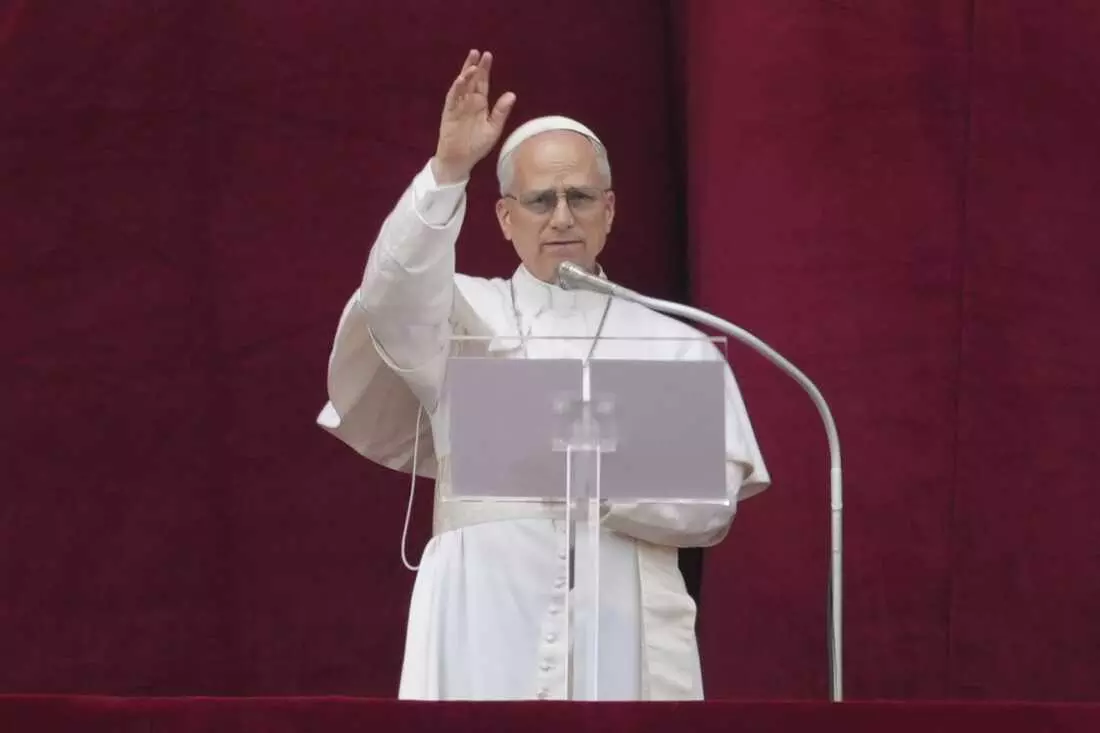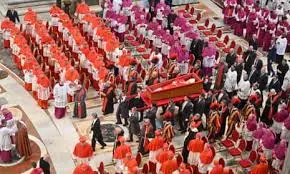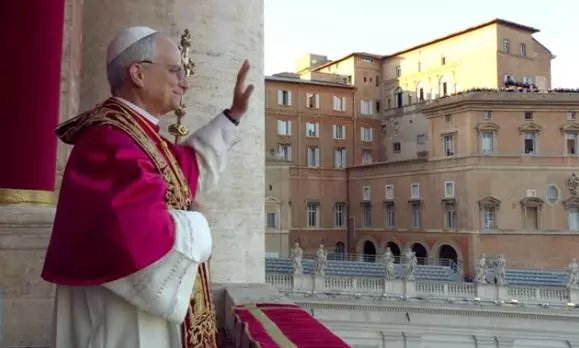
A new Pontiff, an enduring legacy: a Muslim reflection on Pope Leo XIV's first words
text_fieldsHistory was made this week with the election of Pope Leo XIV, the first American to hold the papacy. For many, including this Muslim observer, the moment carried not only symbolic weight but moral urgency. As the world mourns the death of Pope Francis—a pontiff remembered for his prophetic courage and compassion—the question looms: Will his successor carry forward the moral clarity that defined Francis's papacy?
In his first Sunday blessing, Pope Leo XIV addressed a crowd of over 100,000 in St. Peter's Square and called for an immediate ceasefire in Gaza, humanitarian aid to the besieged civilians, and peace in Ukraine. Echoing Francis, he declared: "Never again war". He wore the simple white cassock of the papacy and eschewed grandeur in both tone and substance, invoking peace not as abstraction but as responsibility. His first homily, delivered partly in English and Italian, warned against "a loss of meaning in life, the neglect of mercy, and appalling violations of human dignity."
As a Muslim, I watched closely. And I was moved.
The power of moral leadership lies not in dogma but in daring to speak for the powerless. Pope Francis exemplified this, from calling Gaza's siege "cruelty, not war," to gifting his Popemobile to help evacuate wounded civilians in Gaza. As a Muslim, I felt a kinship not of creed but of conscience.
This legacy of cross-faith moral courage has deep historical roots. When the earliest Muslims faced persecution in Mecca, the Prophet Muhammad advised a group of his followers to seek refuge in Abyssinia (modern-day Ethiopia). There, the Christian king—the Negus—heard their testimony, listened to a Qur'anic recitation honoring Jesus and Mary, and offered asylum. The Meccan envoys, who came bearing gifts and pressure, were turned away. Justice, the king insisted, demanded protection.
That spirit lives on when faith is used to heal, not harm; to shelter, not shame. And though the history between Catholics and Muslims includes dark chapters—from the Crusades to the Inquisition—it also holds luminous moments of solidarity, learning, and refuge.
Pope Leo XIV steps into this legacy at a fragile time. The world is wracked by violence, moral relativism, and political cowardice. His first gestures suggest he understands that faith must confront injustice or risk irrelevance. His missionary background in Peru, his ties to the Augustinian order, and his modest bearing evoke a continuity with Pope Francis. But continuity is not enough.
Millions—not just Catholics—are looking to him to speak with moral clarity on the defining issues of our time: genocide in Gaza, the weaponization of religion, climate catastrophe, rising fascism, and the erosion of compassion in public life.
In India and across the Global South, religious minorities face increasing marginalization. The Pope's voice matters. His homily's emphasis on mercy, dignity, and resisting the secular abandonment of God offers a foundation. But action must follow.
As we see faith being distorted for power all over the world, Pope Francis was a rare global religious leader who spoke up when it mattered. Whether denouncing Islamophobia or affirming that Muslims "adore the one God" in his apostolic exhortation, he helped reclaim religion's humanist core.
Now, Pope Leo has the opportunity—and the obligation—to build on that legacy.
This is not a call for agreement on theology. It is a plea for solidarity grounded in shared ethics: justice, mercy, and the dignity of every human life. For a world reeling from despair, such solidarity is not optional. It is sacred.
The bells of St. Peter’s have tolled for a new pontiff. The prayers of many, including Muslims, go with him.
May he lead not with pomp, but with purpose. Not for Catholics alone, but for all of us who still believe that faith must serve justice.
(Faisal Kutty is a Toronto-based lawyer and regular contributor to The Toronto Star. His articles also appear in Newsweek, Aljazeera, Zeteo, and Middle East Eye. You can follow him on X @faisalkutty)









